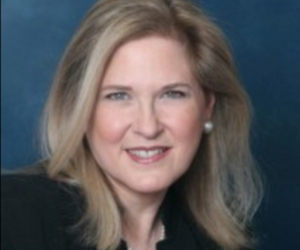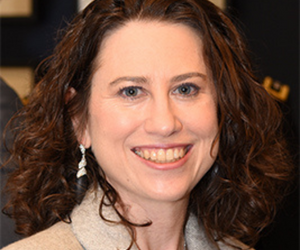Substance Abuse and the Family Business
When it comes to substance abuse, members of a family business are no more immune than the rest of the population. However, as family business advisor Loyd Rawls points out, the consequences can be more dire because serious abuse problems can threaten the entire company.
Family business members need to depend on each other, and any mind-altering drug is likely to interfere with that. This can happen even with a drug that many people may assume is relatively harmless, namely marijuana.
“The success of a family business requires motivation, focus, intensity, and dependability,” Rawls points out, “but marijuana works against all of these. Users we’ve seen can become so mellow that they’re no longer reliable.”
However, in Rawls’s experience it’s another legal mind-altering drug that’s more likely to be a problem: alcohol. No matter what drug is involved, Rawls insists, “You cannot ignore it and expect circumstances to change.”
Rawls recognizes that it’s emotionally draining to confront someone about the impact their drug use has on others. This is especially true since one of the major characteristics of drug abuse is denial.
So what help can a family business advisor do for a family that’s experiencing substance abuse? In the case of the Rawls Group, they have professionally trained and licensed, therapists, people whose years of experience means they’ve “seen it all.”
However, a non-licensed professional can also play a major role. Just recently Rawls heard a distraught client on the phone imploring, “Please talk with my son! He’s always been on the dean’s list at college and now–he’s flunked out!”
It got worse. “I can’t even talk with him anymore,” the father continued. “We only get in arguments and when we do, I lose.”
Rawls quickly arranged a dinner appointment with the son at a local restaurant. For the first 45 minutes they talked about everything under the sun except the elephant in the room: that the guy had just flunked out of college.
The talk might have appeared idle but in fact, Rawls was in working mode. “I was trying to evaluate the young man on how he thinks, how he articulates, how he moves from subject to subject,” Rawls explained.
Eventually the conversation turned more serious. “My father really is upset with me,” the young man finally got around to admitting. “Mr. Rawls, how can I resolve my problems with my father?”
Rawls had a real world kind of answer for him: “Don’t flunk out of school.”
“But I didn’t think I was going to flunk out–it came as a surprise!”
Rawls was having none of it. “Anybody in their 3rd year of college knows when he’s doing badly. This is BS. So what are you going to do?”
“I’ll go to a local college.”
“That’s not going to work until you figured out why you flunked out. And by the way, it’s not hard. You were drinking.”
“But I’ve got that under control!” the young man shot back.
“Let’s take a look at it, do you think things have changed and that you won’t flunk out of the local college?”
Rawls is being very deliberate here. He’s able to say things a parent can’t say. He can call BS. And he can say, “Listen Dude, I can’t encourage either you or your father to expect different results from doing the same thing. Your relationship with him isn’t going to improve until you change.”
“But what should I do?”
“Get up from the table, go home, and say to your dad, ‘Father, I’m going to rehab and then I’m getting a job. I’m going to be responsible for my behavior and while I may be calling on you as my Father for help, I’m not going to expect you as my Daddy to bail me out.”
It’s a tough response, but Rawls knew the young man well, and could spot the real problem. The young man had yet to make the transition from unconditional family support to the highly conditional world outside the family where performance matters.
Fortunately, with Rawl’s help, the young man was able to look in the mirror and recognize that his current approach with DWIs and flunking out of college was not sustainable. If he wanted things to be different, he would have to change.
Rawls has seen this approach work countless times. However, in other cases, a licensed therapist may be what’s needed.
Substance abuse is only a small part of what the Rawls group deals with as family advisors who specialize in succession. They work with all aspects of what it takes to have the family continue to the next generation.
Rawls’s biggest message in the case of substance abuse is, don’t ignore it. It will only do increasing damage and it’s not going to go away on its own.
Search Articles
Latest Articles
Architect of Her Life
https://medium.com/@ken.roman_84029/architect-of-her-life-78e38401de71 Publication –medium.com
Meet Clara Kaluderovic
https://canvasrebel.com/meet-clara-kaluderovic Publication – canvasrebel.com
New Jersey drone sightings expose America’s battlefield blind spot
https://www.washingtontimes.com/news/2024/dec/23/new-jersey-drone-sightings-expose-america-battlefi Publication –washingtontimes.com
She Brews Hope and Resilience Even During War
https://foreignpress.org/journalism-resources/she-brews-hope-and-resilience-even-during-war Publication –foreignpress.org
Subscribe to Updates
About Author

Mitzi Perdue is the widow of the poultry magnate, Frank Perdue. She’s the author of How To Make Your Family Business Last and 52 Tips to Combat Human Trafficking. Contact her at www.MitziPerdue.com
All Articles
The Ultimate Soft Skill for Management: EMPATHY
The Ultimate Soft Skill for Management: EMPATHY Want a surprising statistic? (For a hint, it has to do with soft skills.) Eighty-five percent of management success depends on people skills. Cynthia W. Lett, the woman who gives this statistic, has been advising...
Family Businesses Can Learn from Military History
Family Businesses Can Learn from Military HistoryMilitary Culture My late husband was fascinated by military culture, and you could often find him reading the biographies of famous generals. His fascination stemmed from his interest in human motivation. He often...
Family Quarrels & Mediation–Pull Back from the Brink
Family Quarrels & Mediation– Pull Back from the BrinkI hope you’re not reading this because you’re up against a family quarrel. The pain of a family quarrel can permeate every hour of every day. The fallout has the potential of threatening everything we all hold...
What Family Businesses Can Learn From Military Culture
What Family Businesses Can Learn From Military CultureFor longevity and having an extraordinarily strong culture, few organizations can match our military. The military culture of our armed services began before the founding of our country, and it survives to this...
Four Sure-Fire Ways to Stand out in Your Career
Four Sure-Fire Ways to Stand Out in Your CareerA young man in a class I was addressing at a Columbia University business class asked me a poignant question. “How do I stand out in my career?” He was in his mid-twenties, professionally dressed, and his body language...
Family Stories Keep Families Together
Family Stories Keep Families TogetherJackie Kennedy Onassis once said: “If your children turn out well, nothing else matters. If your children turn out badly, nothing else matters.” Having the young people in your life turn out well is as important as anything else...






